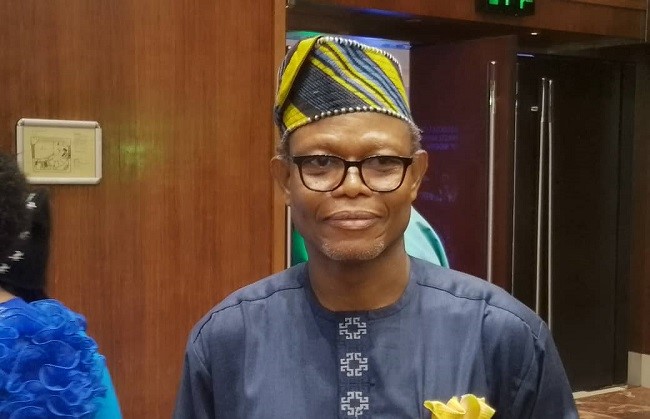The Nigerian Meteorological Agency (NiMet) has predicted sunshine and thunderstorms from Tuesday, April 8 to Thursday, April 10, 2025, across the country.

NiMet’s weather outlook released on Monday, April 7 in Abuja, envisaged sunny skies on Tuesday across the northern region throughout the forecast period.
According to NiMet, sunny skies with patches of clouds are anticipated over the North Central region with prospects of isolated thunderstorms over parts of the Federal Capital Territory, Nasarawa, Plateau, Kwara and Kogi states during the afternoon or evening hours.
“In the South, there are chances of morning thunderstorms over parts of Cross River and Akwa Ibom states.
“Later in the day, isolated thunderstorms are expected over parts of Imo, Abia, Ebonyi, Oyo, Osun, Ogun, Ondo, Edo, Delta, Lagos, Cross River, Akwa Ibom, Rivers and Bayelsa states,” it said.
The agency anticipated sunny skies across the northern region on Wednesday, with chances of morning thunderstorms over southern Taraba State.
It predicted sunny skies with patches of clouds over the North Central region with prospects of afternoon or evening thunderstorms over parts of the FCT, Plateau, Nasarawa, Kwara and Kogi states.
“In the South, cloudy skies with spells of sunshine are anticipated with chances of morning thunderstorms over parts of Cross River and Akwa Ibom states.
“In the afternoon or evening hours, isolated thunderstorms are expected over parts of Ogun, Osun, Oyo, Ondo, Abia, Imo, Ebonyi, Edo, Rivers, Cross River, Bayelsa, Akwa Ibom and Delta states,” it said.
According to NiMet, sunny skies are expected across the northern region on Thursday throughout the forecast period.
It envisaged sunny skies with patches of clouds over the North Central region with chances of isolated thunderstorms over parts of the Federal Capital Territory, Plateau and Nasarawa states in the afternoon or evening period.
“In the South, cloudy skies with spells of sunshine are anticipated with chances of isolated thunderstorms over parts of Cross River and Akwa Ibom states during the morning hours.
” Later in the day, isolated thunderstorms are expected over parts of Oyo, Ondo, Abia, Imo, Enugu, Edo, Bayelsa, Cross River, Lagos, Akwa Ibom, Delta and Rivers States,” it said.
The agency advised the public to stay in well-ventilated, cool spaces and drink plenty of water to stay hydrated as temperatures were high over most parts of the country, putting people at risk of heat stress.
It also urged the public to get vaccinated against meningitis, practice good hygiene by washing hands regularly, and avoid overcrowding in small spaces.
“Use a nose mask to reduce chances of infection and avoid close contact with those affected.
“Avoid peak sun hours (12:00 p.m. to 3:00 p.m.) and protect yourselves from undue exposure to direct sunlight.
“Strong winds may precede the rains in areas where thunderstorms are likely to occur, public should take adequate precaution.
“Airline operators are advised to get airport-specific weather reports (flight documentation) from NiMet for effective pplanning of their operations.
“Residents are advised to stay informed through weather updates from NiMet. Visit our website: www.nimet.gov.ng,” it said.
By Gabriel Agbeja










